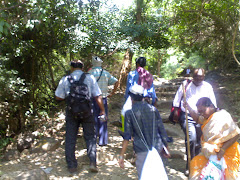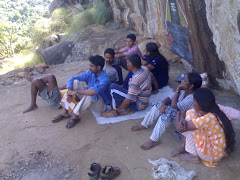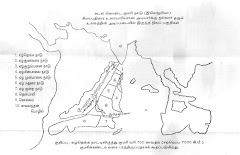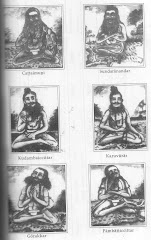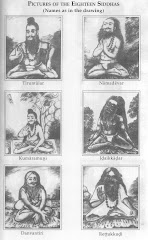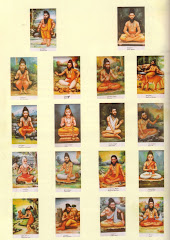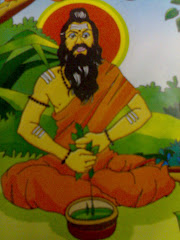INSOMNIA
Insomnia is a common sleep disorder where the patient finds it difficult to fall asleep or stay asleep. This disease condition regularly affects millions of people worldwide. Published literature has reported nearly 30% population has difficulty initiating sleep, difficulty maintaining sleep, wakes up too early and/ or in some cases, non-restorative or poor quality of sleep. Insomnia significantly affects quality of life as it may lead to daytime sleepiness, lethargy, and a general feeling of being unwell, both mentally and physically. Commonly associated symptoms include mood swings, irritability, anxiety and a potentially higher risk of developing chronic diseases. In conventional system of medicine, antipsychotics and sedatives are used to combat insomnia that is often habit forming. However, insomnia can be successfully treated by integrated approach of AYUSH systems of medicine. In Siddha System of medicine, insomnia is referred as Thookaminmai.
Insomnia is the most common sleep disorder that significantly affects the quality of life of the patient. The patient with insomnia complains primarily of dissatisfaction with the quality and/or quantity of sleep. This dissatisfaction may stem from the difficulty in falling or staying asleep throughout the night, or the number of times patients wake up during the night. The impact of insomnia on health has been studied from the epidemiological point of view, except for its relationship to psychopathology. However, several studies have shown an association of insomnia with a worse overall health status and a self-perception of poor health. Insomnia is usually associated with daytime fatigue and mood disorders such as irritability, dysphoria, tension, helplessness and depression [3,4]. At least one study suggesting that untreated chronic insomnia may be a risk factor in developing major depression [5]. In addition, patients with insomnia often have somatic complaints, typically gastrointestinal and respiratory, or headaches and non-specific pains.
During the day, patients with chronic insomnia may have problems that affect both their health and social and occupational functioning. They may complain of symptoms on the emotional, behavioural and cognitive level and of impairment in their social and working lives, with an increase in absenteeism . Moreover, they are more likely to have accidents. Published literature has reported nearly 30% population has difficulty initiating sleep, difficulty maintaining sleep, wakes up too early and/ or in some cases, non-restorative or poor quality of sleep. This result in a poorer quality of life: they are impatient, have difficulty concentrating, organising their work or are warned that their productivity is lower than expected. These patients also have more frequent health service consultations, which represent an increase in both direct and indirect health costs . Diagram 1 shows some of the health effects caused by insomnia, with both personal and social consequences.
Diagram 1. Effects of insomnia on health
When insomnia becomes chronic, it is associated with increased morbidity . Insomnia or typical manifestations have been associated in epidemiological studies with respiratory disease (chronic obstructive pulmonary disease-COPD, asthma, chronic bronchitis), rheumatic diseases, cardiovascular diseases (coronary heart disease, hypertension), cerebro-vascular conditions (stroke), diabetes and painful diseases, among others .
Causes
Insomnia can be caused by physical and psychological factors. There is sometimes an underlying medical condition that causes chronic insomnia, while transient insomnia may be due to a recent event or occurrence. Insomnia is commonly caused by:
Psychological issues - bipolar disorder, depression, anxiety disorders, or psychotic disorders.
Medical conditions - chronic pain, chronic fatigue syndrome, congestive heart failure, angina, acid-reflux disease (GERD), chronic obstructive pulmonary disease, asthma, sleep apnea, Parkinson's and Alzheimer's diseases, hyperthyroidism, arthritis, brain lesions, tumors, stroke.
Disruptions in circadian rhythm - jet lag, job shift changes, high altitudes, environmental noise, extreme heat or cold.
Hormones - estrogen, hormone shifts during menstruation.
Other factors - sleeping next to a snoring partner, parasites, genetic conditions, overactive mind, pregnancy.
Symptoms of insomnia:
• difficulty falling asleep, including difficulty finding a comfortable sleeping position
• waking during the night and being unable to return to sleep
• feeling unrefreshed upon waking
• daytime sleepiness, irritability or anxiety
Sleep-onset insomnia is difficulty falling asleep at the beginning of the night, often a symptom of anxiety disorders. Delayed sleep phase disorder can be misdiagnosed as insomnia, as sleep onset is delayed too much later than normal while awakening spills over into daylight hours.
It is common for patients who have difficulty falling asleep to also have nocturnal awakenings with difficulty returning to sleep. Two-thirds of these patients wake up in the middle of the night, with more than half having trouble falling back to sleep after a middle-of-the-night awakening.
Early morning awakening is an awakening occurring earlier (more than 30 minutes) than desired with an inability to go back to sleep, and before total sleep time reaches 6.5 hours. Early morning awakening is often a characteristic of depression.
DSM-5 criteria for Insomnia
1. Predominant complaint of dissatisfaction with sleep quantity or quality, associated with one (or more) of the following symptoms:
a) Difficulty initiating sleep. (In children, this may manifest as difficulty initiating sleep without caregiver intervention.)
b) Difficulty maintaining sleep, characterized by frequent awakenings or problems returning to sleep after awakenings. (In children, this may manifest as difficulty returning to sleep without caregiver intervention.)
c) Early-morning awakening with inability to return to sleep.
2. In addition, the sleep disturbance causes clinically significant distress or impairment in social, occupational, educational, academic, behavioural, or other important areas of functioning.
3. The sleep difficulty occurs at least 3 nights per week.
4. The sleep difficulty is present for at least 3 months.
5. The sleep difficulty occurs despite adequate opportunity for sleep.
6. The insomnia is not better explained by and does not occur exclusively during the course of another sleep-wake disorder (e.g., narcolepsy, a breathing-related sleep disorder, a circadian rhythm sleep-wake disorder, a parasomnia).
7. The insomnia is not attributable to the physiological effects of a substance (e.g., a drug of abuse, a medication).
8. Coexisting mental disorders and medical conditions do not adequately explain the predominant complaint of insomnia.
Siddha System of medicine one of the ancient traditional Indian system of medicine refers Insomnia as “Thookaminmai”. In the Siddha text Noiillaneri describes the effects of Insomnia i.e if the person doesn’t sleeps well he will experience heaviness of head, generalized body pain, opthalmalgia, ear will be normal but the person’s brain may not appreciate any sounds.
Varmam is a unique, special branch of Siddha medical system play a major role in the management Insomnia. From ages Varmam has been developed and used as martial or defensive art and also used in medical healing practice. According to the Siddha literature, Varma therapy is considered as Vital points therapy by which the disease are healed by manipulating some pressure points either by touch or massage in appropriate pressure.
Varma therapy is simple, cost effective, non invasive, drugless and can be done at anywhere. Varma is a complete naturalistic healing system to rejuvenate the body by eliminating toxic imbalances to restore resistance and good health in the highly stressful environment of modern times. There are about 108 major Varmam points located in the body, among these Kondaikolli, Patchi ner Varmam, Patchi Varmam, Thilartha kaalam, Vettrilai kaalam, Kuttri kaalam, Adappa Kaalam, Soozhiaadi Varmam, Saramudichu were applied over the patient with Insomnia.
